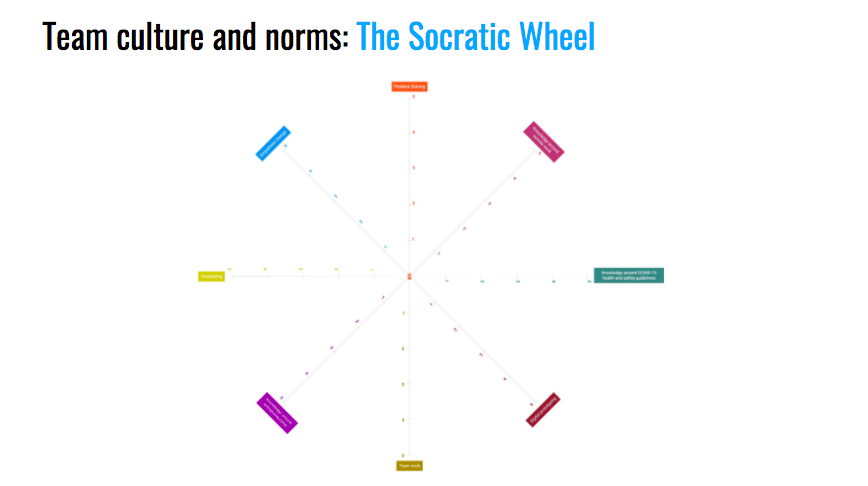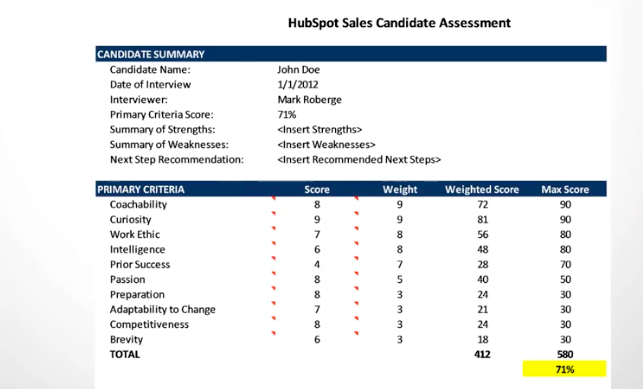Startup Library
2. Hire talent
What is talent and why is acquiring it important?
In the context of a startup, “talent” can include cofounders, full-time or part-time employees, external consultants or freelancers, partner organizations and advisors (individual or on a board) — because you will need to “hire” a unique
combination of talent over time, to bring your idea to life.
The right “hires” can catapult or kill your startup success. So here are some tricks to hiring well.
1. Focus first on your cofounder
An an excellent lecture (full access below), Sam Altman, founder of YCombinator, opines on the importance of a cofounder:
First, I want to talk about cofounders. Cofounder relationships are among the most important in the entire company. Everyone says you have to watch out for tension brewing among
cofounders and you have to address this immediately. That’s all true and certainly in YC’s case, the number one cause of early death for startups is cofounder blowups. But for some reason, a lot of people treat choosing their cofounder with even
less importance than hiring. Don’t do this! This is one of the most important decisions you make in the life of your startup and you need to treat it as such.
It’s been said that “the right dynamic between partners can be more important than the business idea itself”. That means finding someone with complementary skills with whom you can
establish mutual trust and respect. Trust fosters sincerity, reliability, and competence, while respect upholds a high regard for each other’s character, achievements, and ideas.
A great list of questions to interview your future co-founder
Whether you already have co-founders or if you’re looking to hire your first co-founder, it’s important to have hard disucssions early on to reduce friction and problems in the future.
- How should we divide the shares? Who gets what percentage of the company?
- How will decisions get made?
- What happens if one of us leaves the company?
- Can any of us be fired? By whom? For what reasons?
- What are our personal goals for the startup?
- Will this be the primary activity for each of us? Will one of the co-founders be keeping her day job until the company gets off the ground? Will one be working on another
sideline business? - What part of our plan are we each unwilling to change?
- What contractual terms will each of us sign with the company? Will each of the co-founders be signing some sort of contract with the company (outside of the shareholder
agreement)? If so, what will the terms of this be? - Will any of us be investing cash in the company? If so, how is this treated? Is it debt? Is it convertible debt? Does it buy a different class of shares?
- What will we pay ourselves? Who gets to change this in the future?
You can read more details about the questions in the sourced article:
2. Prioritize your next hire
Identifying knowledge and skill gaps you need to fill in order to realize time-sensitive business needs (e.g., upcoming milestones). The Socratic Wheel is a great assessment tool you can use to do so. It’s a simple framework to help you as a team frame and figure out
what’s important and where your talent gaps are.
3. Write strong job descriptions
Writing a clear job description outlining role specific requirements and responsibilities within the context of the wider team structure, culture and norms.
Check out this template to create your MVP job description.
4. Create a candidate assessment form
Not all candidates are equally good for all jobs. Mark Roberge does a good job of describing this with respect to hires to drive sales, in the first part of his video called “The Sales
Acceleration Formula” . (Around the timestamp 5:44.)
For each role, define the primary criteria and the weighted importance, and suddenly you have a whole new perspective on candidates that maybe you struggled to tell apart. Since each
interviewer can independently score the candidate, the makes for a great conversation framework for making a decision as a team.
- The CV can only tell you so much. Does the person care enough to pay attention to detail (or can they?!)? eg. grammar, spelling, formatting, etc. Did the person read the job
description and align their CV to reflect what you are looking for? - Add in a video interview option as your second filter. Ask 5 simple questions with a maximum of 1 minute for each response eg. Why this job? Why this company? Why them? What do
they do on weekends for fun? etc. Give the candidate the chance to redo their answer 3 times. With this, you can see how and if they prepare (their background, their lighting, their answers — did they take the time to redo?, etc.). There are
some good interview platforms out there (here is one that we have used is MyInterview.com) — and integrating this step in your process can save you loads of time in the face-to-face interview stage.
5. Build a list of interview questions
Have you ever been in an interview where the brilliant questions just seemed to dry up? It happens to everyone — so build and share your startup interview question set to make the job
easier for everyone on your team. Here is a short list of questions to get you started.
Don’t underestimate the impact early hires will have on your startup’s performance.
You will also need to seek legal advice to draft contract templates with terms and conditions that protect you and potential freelance, part-time, and/or full-time hires in the event of
irreconcilable differences. And don’t forget about the importance of creating an effective onboarding experience so that new hires can hit the ground running. First impressions last!
Just remember to be intentional about the hiring process and you will drastically improve your likelihood of finding the ‘right’ people for your team.
One more point on the importance of team culture and hiring
Peter Theil, author of Zero to One and co-founder of Paypal, gives 4 simple rules to help guide you with building a strong team culture:
- The Best Startups Work a Lot Like Cults
- Giving People a Chance to “Change the World” Is a Lousy Way to Recruit Employees
- Everyone at Your Startup Should Have Just One Job
- Hire Employees Who Are Excited to Wear Your Logo on Their Hoodies
No company has a culture; every company is a culture. A startup is a team of people on a mission, and a good culture is just what that looks like on the inside. The first team that I
built has become known in Silicon Valley as the “PayPal Mafia” because so many of my former colleagues, including Elon Musk, Reid Hoffman, and David Sacks, have gone on to help each other start and invest in successful tech companies.
Read the details in the full article:
And some final words from an expert
Here is the whole lecture from Sam Altman with some interesting insights on hiring.
here is the full transcript.
A few interesting timestamps
Below is a quick list of timestamps for convenient skipping to different topics:
2:45 Cofounder relationships. Among the most important. #1 cause for YC blowups.\
2:22 Today’s topics: How to hire (Team) and how to execute (Execution)
5:35 Characteristics to look for in a cofounder. “Relentlessly resourceful.”
7:27 Second part of how to hire: Try not to. It sucks to have a lot of employees. Anyone with a bad employee in their first few destroyed the company.
10:20 When hiring #1 goal: Get the best people. If you’re a rocket ship, then good people will notice and join. A single mediocre engineer can kill a startup.
13:21 Where to hire? The best source is from people you know. Choose aptitude over experience in the early days.
15:00 Things to look for when hiring.
18:44 Employee equity. Aim to give 10% to first 10 employees.
20:35 What are the jobs of a CEO?
22:25 Fire bad employees fast. e.g. Negative or politicking people.
24:55 When to have equity talks.
29:06 Execution. The company culture models the founders.
31:45 100’s of things competing for your attention. One of the hardest things as a founder. You need focus.
33:50 The best founders talk about their goals over and over. You need good communication.
34:36 Growth and momentum are extremely important. Have the right metrics and focus on growing them.
38:50 Best predictor of success for founders: They continually get new things done.
43:35 Disagreements between founders are settled by asking the users.
44:45 The best thing a board can do for you: Review metrics & milestones.


